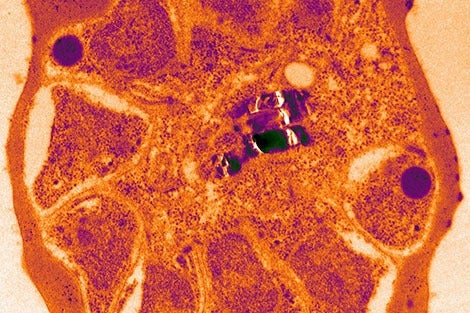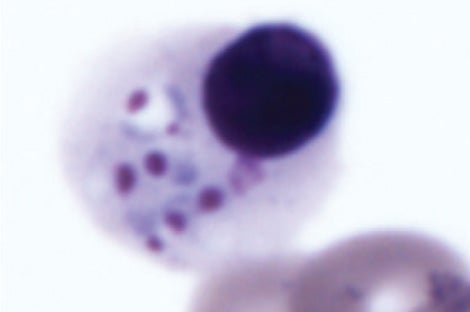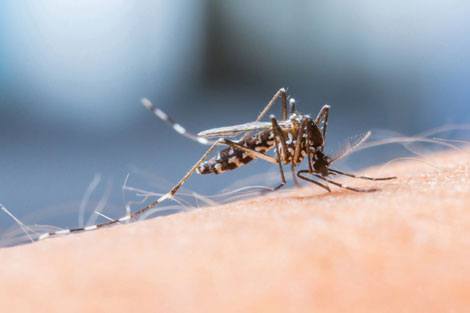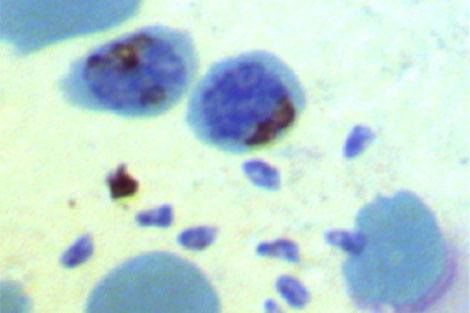Once a malaria patient, student now has sights set on stopping the deadly disease
Cyrianne Keutcha, PhD ’25, has been around malaria all her life, from growing up in a malaria-endemic country, to being infected herself, and now to studying the parasite in the lab.

Why are we seeing new malaria cases in the U.S.?
The Centers for Disease Control and Prevention recently reported several cases of locally acquired malaria in Florida and Texas—the first such cases in the U.S. in over two decades. Manoj Duraisingh explains the significance of the cases and…

Essential doorways for malaria parasites’ invasion of red blood cells identified
A key step in fighting malaria is understanding the biology behind the parasites’ invasion of their human hosts. Two recent studies from Harvard T.H. Chan School of Public Health researchers and colleagues have identified key essential proteins on…

New drugs, tools, innovations needed to rid world of malaria
New medicines to help counter drug resistance and tools like gene drive technologies to curb parasite transmission are among the innovations needed to rid the world of malaria, according to a new research agenda published as a special…
Key enzyme identified for unique mode of malaria parasite replication
February 23, 2017 – Researchers have identified an enzyme that plays a key role in malaria parasite replication in the human bloodstream. The Harvard T.H. Chan School of Public Health scientists say that developing drugs that target the…

Potential pathway for emergence of zoonotic malaria identified
For immediate release: Monday, April 4, 2016 Boston, MA – The parasite responsible for a form of malaria now spreading from macaques to humans in South Asia could evolve to infect humans more efficiently, a step towards enhanced…

New target identified for inhibiting malaria parasite invasion
For immediate release: June 25, 2015 Boston, MA ─ A new study led by researchers at Harvard T.H. Chan School of Public Health finds that a malaria parasite protein called calcineurin is essential for parasite invasion into red…

Malaria parasite’s essential doorway into red blood cells illuminated
For immediate release: Thursday, May 7, 2015 Boston, MA – Researchers at Harvard T. H. Chan School of Public Health and the Broad Institute have identified a protein on the surface of human red blood cells that serves as an essential…

New molecular target identified for treating cerebral malaria
For immediate release: January 30, 2015 Boston, MA – A drug already approved for treating other diseases may be useful as a treatment for cerebral malaria, according to researchers at Harvard T. H. Chan School of Public Health. They discovered…

Monkey malaria parasite poses increasing risks to humans
May 9, 2013 -- A new study has shed light on why a monkey malaria parasite that typically caused only mild infection in humans is now beginning to cause severe disease and death—and how it has the potential…
